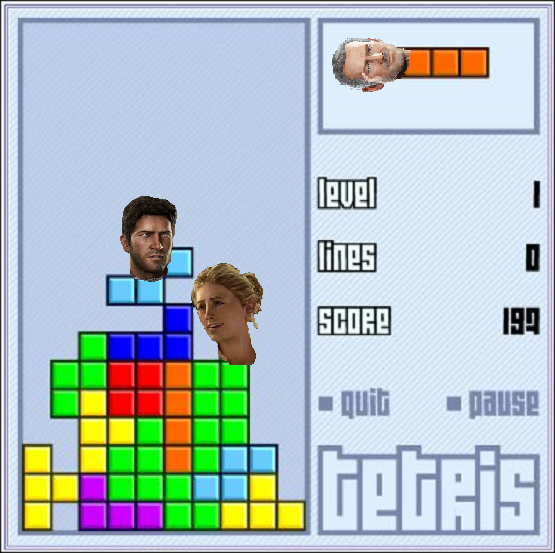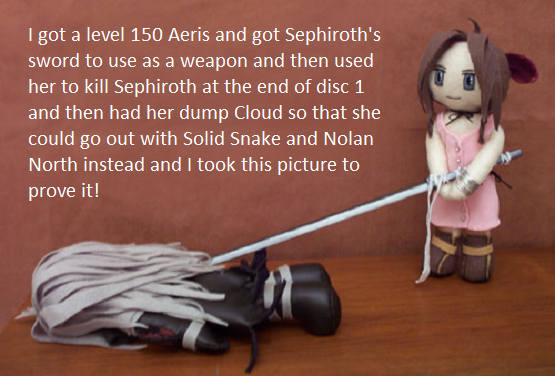‘CTW’. That’s what I identified myself by in the years before I created a PSN ID. Prior to the fancy profile names, we were all just three initials on the arcade high-score screen. My ‘CTW’ was right there above ‘BLT’ and just below the one lucky enough to have their initials be ‘ASS’ (Wait… what? You mean it’s not Anthony ‘Simon’ Severino?).
Gamers would frequent their local arcade machines and load them full of quarters until they were able to display their initials over somebody else’s on those early leaderboards. At home, we constantly fought to take down the computer programmed high scoring tiers, most often topped by the enigmatic ‘AAA’, unless the developers decided to get more creative and call him ‘BOB’. People told us we were crazy for devoting so much time and effort to high scores. “It’s just a game” they said.
Competition is ingrained in human history. Largely barbaric in nature, we have been competing for as long as man-beasts could grunt out “Up Yours!”. Some may be friendly competitions while others may be all out war, but we are always competing for the high-score. Mankind continues to compete today through such barbarism as American football, wrestling, UFC fighting, and chess tournaments. Video games have aptly followed suit in allowing encouraging our competitive nature.
The draw of games and their replayability used to be in playing for a high-score. Classics like Tetris, Space Invaders, and Pong have little-to-no purpose aside from simply getting the highest score. There was no underlying story or overarching themes such as equality for all shapes of blocks. Tetris did not star Nathan Drake and Space Invaders was not the origin story of Master Chief. Even games that provided a ‘story’ kept track of a score in the corner of the screen, as was the case with Mario.

One of the common complaints about modern games is in length. Less than ten hours is often considered to be too short for a campaign, but could you imagine a nine hour campaign on Tetris? Or seven hours facing off against a friend in Pong? Gamers didn’t play these games for their stories or their campaigns. They played for the high-score and competition.
Call of Duty may be the best example of a modern-day extravagant version of Pong. Call of Duty caters to the competitive nature for gamers that don’t necessarily want a lengthy story or campaign. How many Call of Duty players do you know that never actually touch the single player campaign, but have put hundreds of hours into the competition of the online world? They do it for the high-score.
At this point you may be thinking “But wait Chandler, I play games like Final Fantasy VII, and Uncharted! I’ve escaped the ‘high-score’ mentality, right?”. Wrong. How often have you heard people talk about Final Fantasy (VII or otherwise) and somebody inevitably says “Oh yeah, I did absolutely 100% everything you could do in that game, and got the uber secret sword of ‘blah’, got to see character A totally get it on with character C in a secret scene, and got the super secret ending sequence where you actually play as the villain!”, which is, of course, all lies.

It’s all about the competition. If both of you beat the secret, difficult boss, then it’s about who did it in a shorter time. If you both achieved the highest level, then it’s about who obtained all of the secret weapons. In the days prior to the PlayStation 3 (and 360), these feats were nearly impossible to catalog. You could easily tell everyone that you got Aeris to level 99 before her tragic fate at the end of the first disc in Final Fantasy VII. The schoolyard pals that you are bragging to are not about to come over to check for themselves, because, let’s face it, no one actually did that.
Introducing achievements and trophies. There is a reason that Microsoft calls it a Gamerscore. Microsoft paved the way for creating a unified high-score system while Sony followed suit with the trophy update in 2008. Want to prove that you got all of your characters maxed out? Now every game has a verifiable level of competition to it. Want to prove that you really did 100% of what there was to do in Assassin’s Creed III (among a few other miscellaneous tasks)? Go for the platinum trophy.
A platinum trophy is the ultimate high-score for a game, and maybe most importantly, it’s proof! I finished all 500 of the VR missions and collected all of the dog tags on Metal Gear Solid 2. Don’t believe me? Check my trophies. My schoolyard bragging rights have long since transferred to an office environment, but now I can back up my claims.

As a disclaimer to the naysayers, I have to say that I am stereotyping. This may not apply to everyone. Inevitably, some of you will comment to say that you aren’t looking to compete; that you honestly just play games for the fun of the games, but isn’t that why the high-score junkies go after the high-scores? Competition IS fun and we have many different ways to compete. Not into football? Play video games. Not into shooters online? Go for trophies. Just want to play for fun and story? Be the first one to get the game at midnight on launch date. Whatever your method of competing for the high-score, remember to have fun doing it. After all, it’s just a game.
How do you compete? Do you go after the kill/death ratio vs. other human players or are you after more personal achievements? Let us know about your high-scores in the comments below.
Essential Reading








